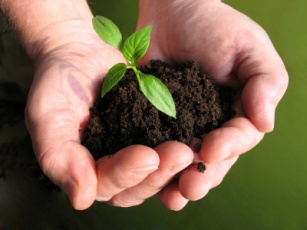COP15 looks like it may well be a cop out. The world was disappointed when it became clear Barack Obama would not get climate protection legislation through the U.S. Senate, endangering any meaningful global agreement. But a much earlier cop out came when agriculture failed to make it onto the agenda at all.
There is growing awareness of this sector’s significance. Within the E.U., the food we eat represents nearly a third of the climate footprint of consumers. When it comes to tackling farming’s footprint, all eyes have been on livestock-related methane emissions and nitrous oxide emissions from fertilised fields, or the potential to generate energy from biofuels and the anaerobic digestion of animal wastes. Aspirations are low. The 2020 target for agriculture in the U.K.’s Low Carbon Transition Plan is a voluntary 6-11 percent greenhouse gas reduction, compared to mandatory 20-40 percent targets in all other sectors of the economy.
One big blind spot remains, both in this country and elsewhere: soil carbon. Soil carbon sequestration, according to the IPCC’s scientific advisors on land use, represents 89 percent of agriculture’s green... Read more
